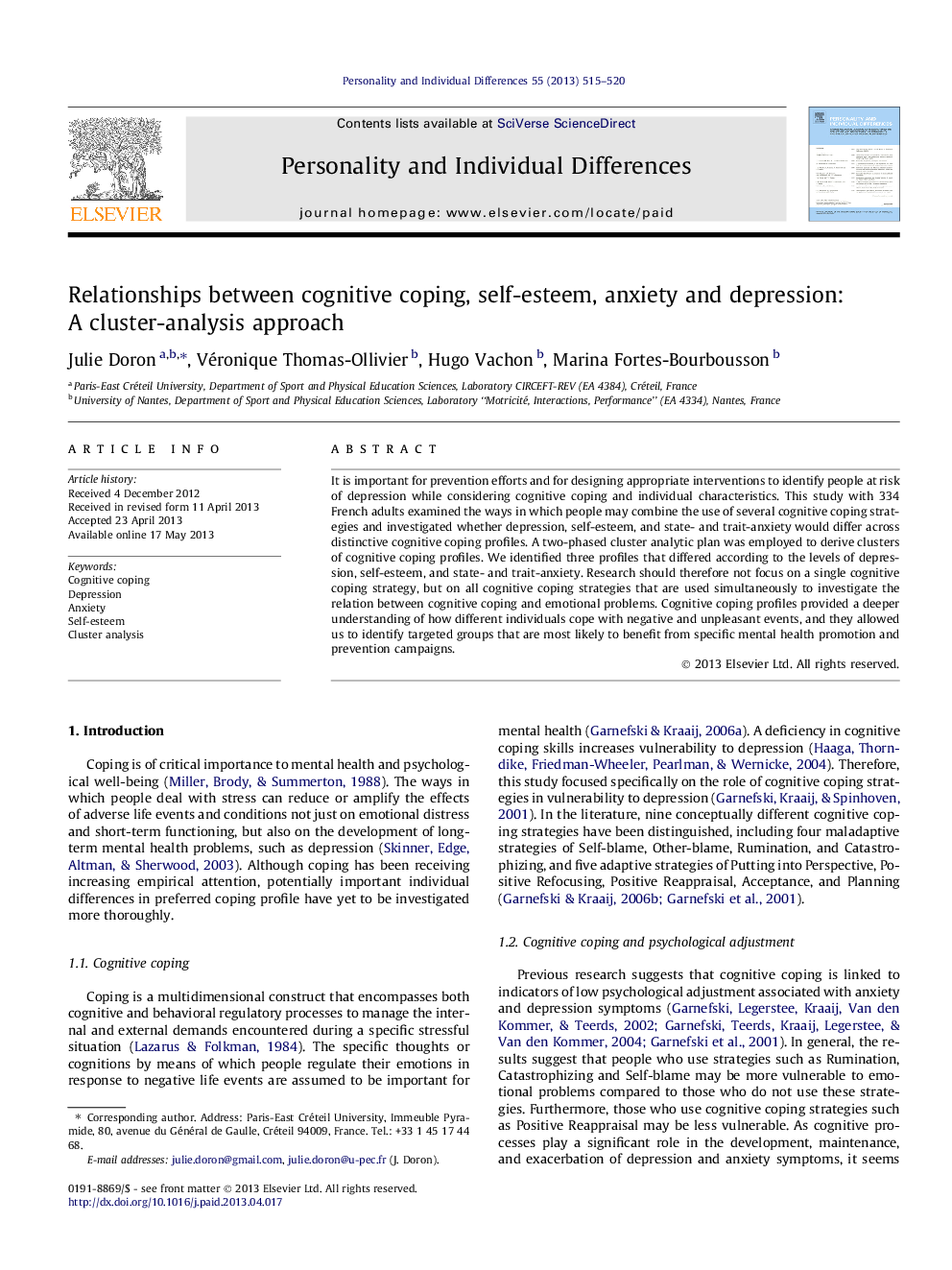| Article ID | Journal | Published Year | Pages | File Type |
|---|---|---|---|---|
| 890602 | Personality and Individual Differences | 2013 | 6 Pages |
•This study presented an alternative methodology.•We used cluster analysis to identify the different cognitive coping profiles.•People at risk of depression were identified based on cognitive coping profiles.•Self-esteem and trait-anxiety were core variables in coping profiles.•Future research should move from coping strategies to coping profiles.
It is important for prevention efforts and for designing appropriate interventions to identify people at risk of depression while considering cognitive coping and individual characteristics. This study with 334 French adults examined the ways in which people may combine the use of several cognitive coping strategies and investigated whether depression, self-esteem, and state- and trait-anxiety would differ across distinctive cognitive coping profiles. A two-phased cluster analytic plan was employed to derive clusters of cognitive coping profiles. We identified three profiles that differed according to the levels of depression, self-esteem, and state- and trait-anxiety. Research should therefore not focus on a single cognitive coping strategy, but on all cognitive coping strategies that are used simultaneously to investigate the relation between cognitive coping and emotional problems. Cognitive coping profiles provided a deeper understanding of how different individuals cope with negative and unpleasant events, and they allowed us to identify targeted groups that are most likely to benefit from specific mental health promotion and prevention campaigns.
